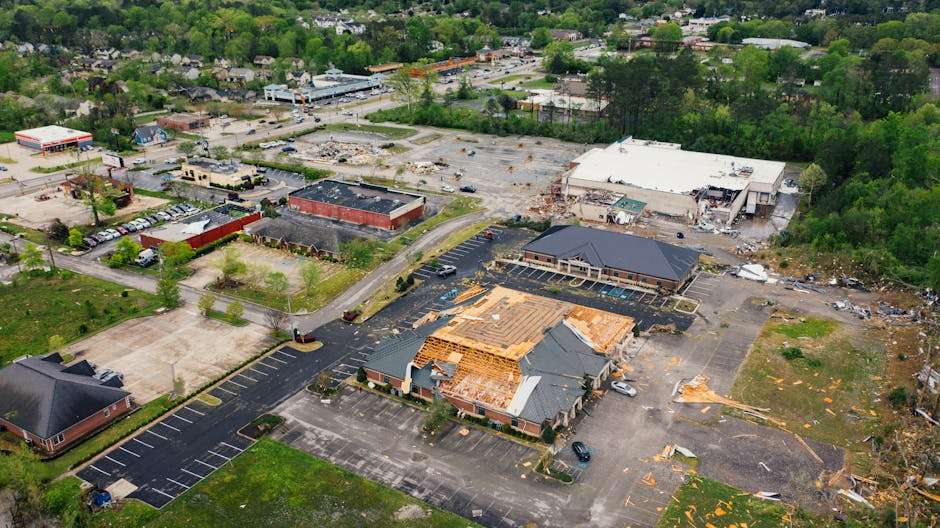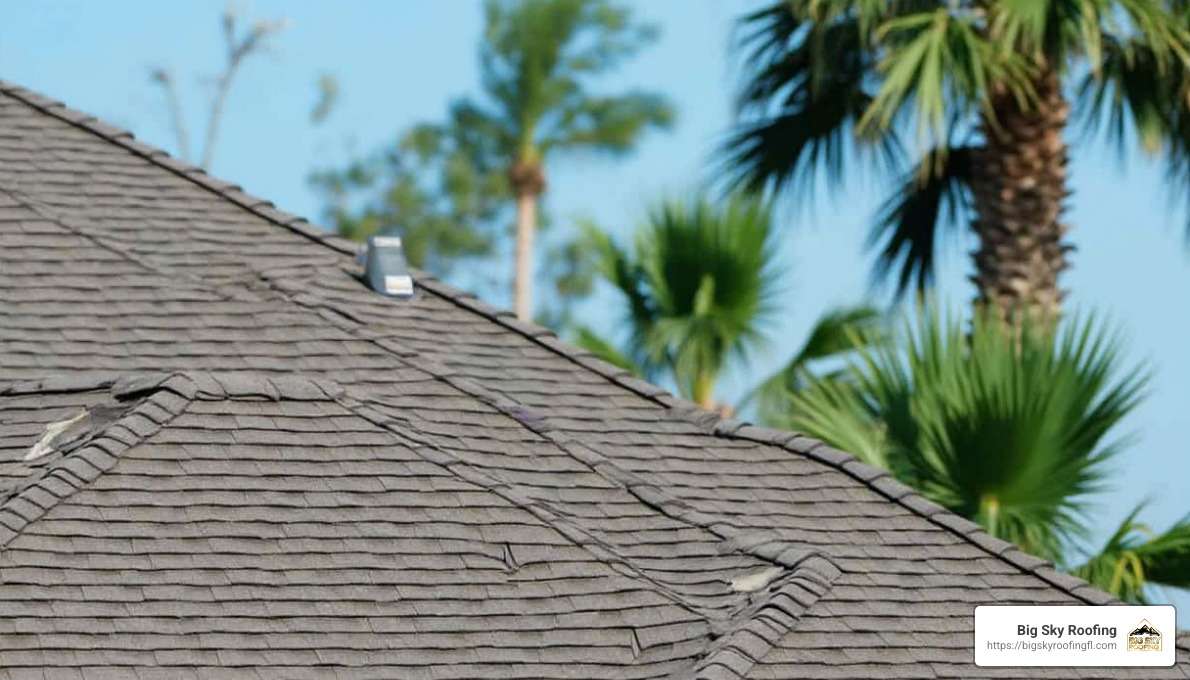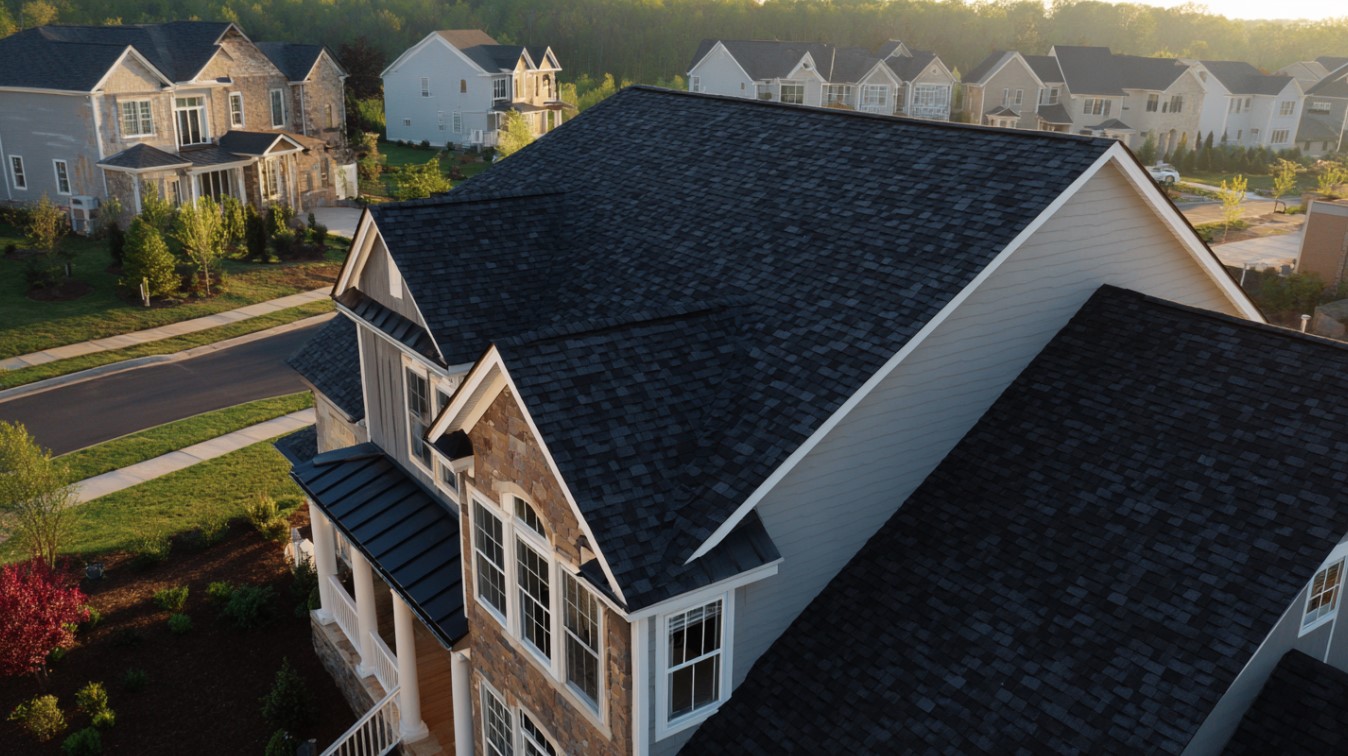DIY Roof Fixes or Roofing Contractor? Make the Right Choice
•
Written By
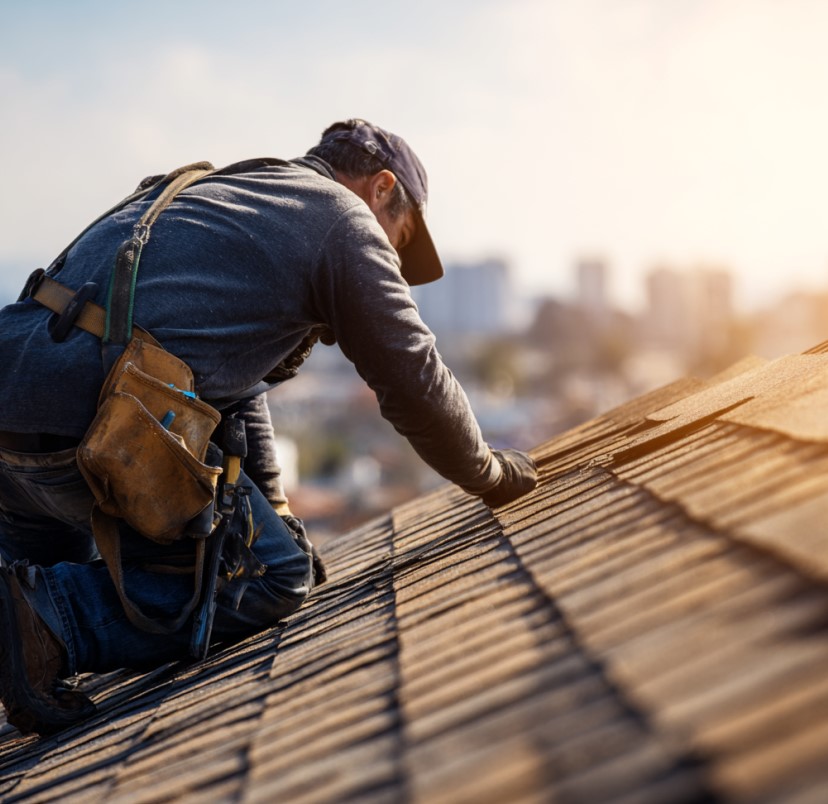
DIY Roof Fixes vs. Professional Roofing Contractor Services: What’s Worth It?
The decision between tackling roof repairs yourself versus hiring professional roofing contractor services is challenging and highly consequential, particularly when considering long-term durability and safety. Homeowners must assess several factors when choosing between DIY roof fixes and professional services, ranging from cost, new roof cost clermont, time commitment, and repair quality to safety standards and warranty considerations. The significance of the roof in protecting the home, ensuring energy efficiency, and maintaining property value calls for careful scrutiny of each repair method. With roofing work being risky, complex, and requiring specialized skills and equipment, many homeowners face the choice of managing minor repairs on their own or entrusting the project to local roofing contractors or licensed professionals. Amid concerns over liability insurance, extended warranty benefits, and overall repair quality, this article examines each factor in detail. By exploring the scope of your roofing project, comparing costs (including new roof cost clermont), time, workmanship, and safety aspects, as well as understanding long-term implications, homeowners can make an informed decision that best suits their needs, budget, and risk tolerance. The following comprehensive analysis delves into each key area critical in determining whether to choose DIY roof repairs or professional roofing contractor services.
Evaluating the Scope of Your Roofing Project
When evaluating the scope of a roofing project, a homeowner must first understand the nuances of the damage and identify which issues can be resolved with DIY fixes and which require professional intervention. It is essential to accurately gauge the severity of the roofing issues, as minor leaks, loose shingles, or small punctures might be manageable for an experienced DIY enthusiast, while widespread, complex damage may need expert attention.
Identifying Minor Issues Suitable for DIY Roof Fixes
DIY roof fixes may be appropriate if the issues are superficial and limited in extent. Small missing shingles, minor granule loss, or a minor leak could potentially be addressed with replacement materials purchased at local suppliers like abc roofing supply. In these cases, proper guidance and research are crucial; homeowners should refer to reliable tutorials or seek advice from the local roofing community. DIY fixes offer the advantage of cost savings if executed correctly, as they minimize labor costs. However, the homeowner must be mindful of safety precautions when working on the roof, including using proper ladders, harnesses, and ensuring that the work is undertaken on a stable surface.
Recognizing Complex Damage Requiring a Roofing Contractor
Complex damage, such as widespread water penetration, structural weakening, or significant wind or hail damage, typically goes beyond the scope of a DIY repair. Such issues might involve significant deterioration of the underlayment, framing, or insulation, resulting in compromised roof integrity. When dealing with these problems, professional roofing contractors bring a wealth of experience and specialized tools to diagnose the full extent of the damage. Their expertise ensures that hidden risks, such as developing mold or rot, are properly addressed. Moreover, these professionals can assess whether the roofing project might require a full roof replacement rather than patch repairs, a decision that can have long-term implications for home safety and property value.
Assessing Safety Risks Involved in DIY Roofing
Safety is paramount in any roofing repair project. DIY projects may expose the homeowner to several hazards, from falls and equipment misuse to complications arising from unstable ladder placement. Even for relatively minor repairs, the absence of proper safety gear can lead to severe injuries or accidents. Professional roofing contractor services, on the other hand, follow strict safety protocols aligned with occupational safety standards. They are insured and bonded, reducing potential risks to both property and personal injury. Homeowners should consider the inherent risks involved and weigh them against the potential cost savings when deciding on a DIY approach.
Understanding When to Consult a Professional Roofing Service for an Inspection
Recognizing the signs that necessitate professional inspection is essential. If the homeowner is uncertain about the structural integrity of the roof or notices ongoing issues such as persistent leaks or uneven roof surfaces, it is advisable to schedule an inspection. A licensed contractor can provide a detailed assessment and recommend either minor interventions or a complete roof replacement. Additionally, professional inspections offer documentation that may be useful for insurance purposes or when planning long-term roof maintenance. A thorough inspection ensures that underlying issues are identified early before escalating to more severe problems.
Cost Analysis DIY Repairs Versus Hiring a Roofing Contractor
The cost analysis between DIY repairs and hiring a professional roofing contractor encompasses various aspects, including upfront expenses, labor costs, and long-term financial implications. Homeowners must balance the desire to save money with the potential risks of improper repairs that could lead to costly issues down the line.
Upfront Material and Tool Costs for DIY Fixes
When choosing to repair a roof independently, the initial costs involve purchasing high-quality materials and procuring or renting the necessary tools. These materials may include roofing cement, replacement shingles, underlayment, and essential safety gear. While sourcing supplies from reputable providers such as abc roofing supply ensures quality, it may still involve investing in professional-grade tools. Often, unforeseen issues arise during DIY projects, requiring additional materials, which can inflate the overall budget. However, DIY repairs can be cost-effective if the homeowner already possesses the skills and tools required for the job and manages to avoid costly mistakes.
Labor Costs Associated With Professional Roofing Contractor Services
Professional roofing contractor services come with higher upfront costs due to labor charges. Licensed contractors charge based on the complexity of the job, the materials used, and the overall duration of the project. Their fees often encompass all aspects of the repair, including the disposal of old materials and the necessary permits. Although these services are more expensive compared to DIY fixes, they provide the advantage of expert workmanship, speed, and quality assurance. This professional oversight can minimize the risk of subsequent repair issues that might otherwise arise from amateur workmanship.
Long-Term Financial Implications of DIY Versus Professional Roof Work
In analyzing long-term implications, the quality of repair and the durability of the work are critical factors. DIY repairs that are poorly executed might result in recurring issues, resulting in additional expenses over time. A shoddy repair can lead to leaks, further structural damage, and even a full roof replacement sooner than expected. Professional contractors, although facing higher initial costs, often offer extended warranties and insurance coverage that safeguard against potential future failures. In many instances, hiring a trusted roofing contractor may be more cost-effective in the long run, as it reduces the likelihood of recurring problems and subsequent repair bills.
How a Roofing Contractor Can Potentially Save You Money
Despite the higher upfront cost, professional roofing contractors often provide indirect savings. Their work quality translates into increased energy efficiency, enhanced roof longevity, and decreased maintenance needs. Furthermore, professional repairs may prevent additional damage during extreme weather conditions, such as hail or windstorms, which could lead to catastrophic home repairs. Contractors also have access to bulk pricing for materials and advanced repair techniques, meaning that the final invoice might be lower than anticipated relative to the quality of work received.
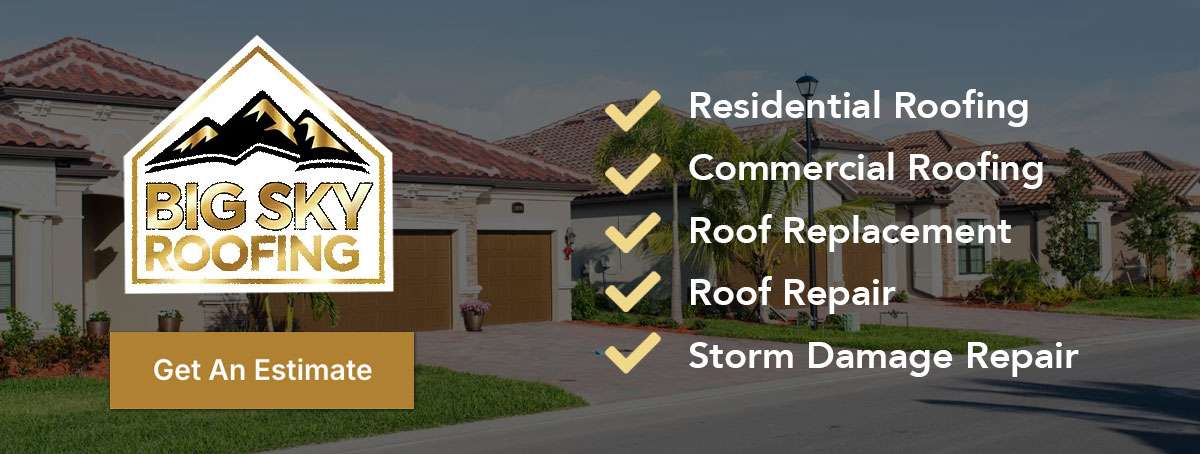
Comparing Quotes From Different Roofing Contractor Companies
In today’s competitive market, obtaining multiple quotes from various roofing companies is essential for a meaningful cost comparison. Homeowners should request detailed estimates that itemize material costs, labor charges, and any potential additional fees. Comparing multiple bids not only helps in securing the best price but also provides insight into each contractor’s reputation and service quality. Reviewing past projects and client testimonials also reinforces the decision-making process. It is advisable to check for proper licensing, insurance, and references before committing to a contractor, as this due diligence protects against unanticipated fees and subpar workmanship.
Analyzing these cost factors helps homeowners make an educated judgment by weighing immediate savings against long-term benefits and risks. Professional services often have a higher sticker price, but they deliver peace of mind, efficiency, and quality assurance that DIY fixes may lack.
Time Commitment and Convenience Factors
Time commitment and the convenience factor are crucial when considering whether to conduct roof repairs independently or hire a professional contractor. Homeowners must not only account for the actual repair work but also factor in scheduling, supervising the project, and post-repair maintenance.
Estimating Time for DIY Roof Fixes
DIY roof repairs can be appealing from a cost perspective, but they may require a significant time investment. Even minor repairs such as replacing loose shingles or sealing small leaks can become time-consuming, especially if the homeowner encounters unforeseen problems. Each step—from preparation and material selection to actual repair implementation and cleanup—demands careful planning and execution. Home improvement projects are often subject to delays due to inclement weather conditions or the need to acquire special tools. For many homeowners, the cumulative time spent on DIY projects could be better allocated to other critical responsibilities or leisure activities.
How Quickly a Roofing Contractor Can Complete the Job
Professional roofers operate with the efficiency of an experienced team, typically completing repair jobs faster than a DIY approach. With specialized equipment and a clear project plan, contractors can address both minor and major roofing repairs promptly. In most cases, roof repair projects that might take an individual several days or even weeks can be completed by a contractor in a matter of hours or a few days, depending on the scope of work. Quick turnaround times reduce the duration during which the home is exposed to weather risks, potentially preventing further damage and associated costs.
The Convenience of Professional Project Management by a Roofing Service
One of the primary advantages of using professional roofing contractors is the project management they offer. Homeowners who opt for professional services benefit from having a designated project manager who coordinates everything—from scheduling material deliveries and arrangements with subcontractors to ensuring that the work adheres to safety standards and quality control measures. This turnkey approach eliminates many logistics and administrative burdens from the homeowner, ensuring that the roof repair project is handled smoothly and efficiently. The convenience factor is particularly significant for older adults or those with busy schedules, as it minimizes direct oversight and management.
Scheduling and Availability Considerations for Both Options
Efficient scheduling is critical for successful roof repairs, especially when weather conditions play a significant role in the work’s completion. Professional roofing contractors have established procedures and flexibility in scheduling, which often means they can quickly accommodate urgent repair needs. Their network and coordination can result in a shorter waiting time compared to the time a homeowner might take to source materials and schedule personal project time. Conversely, while DIY repairs may seem flexible, coordinating all aspects, including safety arrangements and weather-dependent work, may lead to prolonged schedules. Homeowners should weigh the benefits of the contractor‘s efficiency, including fewer disruptions to daily life and reduced overall project duration.
In summary, while DIY roof repairs might look cost-effective on paper, the time commitment and convenience factors often tip the scales in favor of professional roofing contractor services. The efficiency provided by experienced roofers, coupled with comprehensive project management, ensures that repairs are done swiftly and to a high standard, preventing subsequent complications and additional expenses.
Quality of Workmanship and Longevity of Repairs
The quality of workmanship and the long-term durability of roof repairs are critical considerations when choosing between DIY fixes and hiring professional roofing contractor services. Repair quality not only affects immediate home safety but also impacts the roof’s lifespan, energy efficiency, and future repair costs.
Potential Pitfalls and Common Mistakes in DIY Roof Fixes
DIY roof repairs, while potentially cost-saving, can be fraught with pitfalls if the homeowner lacks the necessary skills or experience. Common mistakes include improper shingle alignment, inadequate sealing of gaps, and misapplication of roofing cement, all of which can lead to water ingress and accelerated deterioration. Inexperienced homeowners often underestimate the challenges involved, and minor errors may result in recurring damage. Each error not only compromises the repair’s integrity but also may void manufacturer warranties associated with roofing materials. As a result, poor execution can cause a domino effect, where initial DIY repairs lead to further complications that ultimately require professional rework.
The Expertise and Experience a Professional Roofing Contractor Brings
Professional roofing contractors offer a level of expertise that is difficult to replicate in DIY projects. Their training, experience, and ongoing education in the latest roofing technology and materials ensure that repairs are conducted to industry standards. Contractors often have certifications and credentials that attest to their competency, which can be crucial when addressing complex roof repairs. For example, many contractors have worked with various roofing types—from traditional asphalt shingles to metal roofs—and understand the nuances of each material. This expertise not only ensures that repairs are durable and weather-resistant but also maximizes the lifespan of the roof by addressing potential structural or insulation issues before they escalate.
Material Quality Differences Between DIY and Professional Roofing Services
When conducting DIY repairs, homeowners may choose cheaper materials to save on costs, which can compromise the quality and longevity of the roof. In contrast, professional contractors source premium materials from reputable suppliers like abc roofing supply, ensuring that all components of the repair meet high industry standards. Quality materials, combined with proper installation techniques, lead to improved resistance against weather extremes, water damage, and general wear and tear. Additionally, professional services often include a quality check as part of their process, which guarantees that all aspects of the repair are executed correctly and efficiently.
Warranty Considerations for DIY Fixes Versus Roofing Contractor Work
One significant advantage of hiring a professional roofing contractor is the warranty coverage that often accompanies their work. Contractors typically offer warranties on both materials and workmanship, providing homeowners with added security and financial protection against future issues. DIY repairs, however, are rarely backed by a warranty, meaning any subsequent problems become an out-of-pocket expense for the homeowner. The extended warranty provided by professional services not only covers repair costs in case of failure but also enhances the property’s resale value. Homeowners should carefully review warranty terms before making a decision, as the long-term value provided by a professional repair might outweigh the initial cost differential.
Impact of Repair Quality on Your Roof‘s Lifespan
Ultimately, the repair quality achieved through professional work can significantly extend the lifespan of a roof. Proper installation and precise workmanship reduce the risk of future leaks, structural failures, and energy inefficiencies. A roof that is repaired with attention to detail and high-quality materials not only requires fewer subsequent repairs but also maintains the home’s insulation and overall integrity. High-quality workmanship translates to enduring performance, which is particularly valuable in regions prone to harsh weather conditions, such as hail or extreme temperature fluctuations. Investing in professional roofing services may involve a higher upfront cost, but the long-term benefits include durability, fewer maintenance issues, and potential energy savings that can justify the expense over time.
In conclusion, while DIY roof fixes might seem appealing for small-scale problems, the potential risks, material compromises, and lack of warranty coverage can adversely affect the longevity and performance of the roof. Professional roofing contractor services provide a level of workmanship and material quality that supports long-term durability, ultimately protecting the investment in your home.
Safety and Insurance Considerations for Roofing Work
Safety and insurance should be at the forefront of any roofing repair decision. Roofing work inherently carries significant risks, from falls to improper handling of materials, making safety protocols and proper insurance coverage essential components for protecting both the homeowner and the property. Addressing these concerns is integral, no matter whether the work is done on a DIY basis or by a professional roofing contractor.
Essential Safety Precautions for Any DIY Roofing Project
For homeowners attempting DIY roof repairs, safety precautions cannot be overemphasized. Using the proper equipment, such as sturdy ladders, safety harnesses, and non-slip footwear, is non-negotiable. Additionally, planning the work during favorable weather conditions and having an assistant present can significantly reduce risks. Homeowners should also be aware of their physical limitations and avoid undertaking projects that involve heights or complex maneuvers if they are not confident in their abilities. Detailed research and adherence to safety guidelines—often available through local roofing associations—are critical to preventing accidents. Even seemingly simple tasks can escalate into dangerous situations if proper precautions are not observed.
Safety Standards Followed by Professional Roofing Contractor Services
Professional roofing contractors operate under a strict set of safety standards mandated by both local regulations and industry best practices. These standards include regular safety training, the use of certified equipment, and adherence to guidelines provided by OSHA (Occupational Safety and Health Administration). Contractors ensure that every team member is equipped with the necessary protective gear and that the worksite is secured before beginning repairs. Their protocols mitigate the risk of workplace accidents and ensure that any potential hazards are addressed in advance. The safety culture promoted by professional contractors not only protects the workers but also minimizes liabilities for the homeowner.
Insurance Coverage for Accidents During DIY Repairs
One of the most significant drawbacks for homeowners undertaking DIY roof work is the lack of comprehensive insurance coverage. Most homeowners’ insurance policies do not cover injuries sustained during personal DIY projects, leaving individuals at financial risk in the event of an accident. Moreover, any damage incurred during an unsupervised repair might complicate or void existing homeowner policies. This gap in coverage exposes the homeowner to potential out-of-pocket expenses for medical care or property damage. Consequently, the cost savings derived from DIY projects could be quickly negated by the financial burden of accidents.
Liability and Insurance Held by a Licensed Roofing Contractor
Conversely, professional roofing contractors carry extensive liability and workers’ compensation insurance for their employees. These policies ensure that any injuries incurred during the project or any accidental damage to the property are covered. Hiring a reputable contractor means that the homeowner is protected from potential lawsuits or unforeseen financial liabilities. Verification of a contractor’s insurance and licensing is an essential part of the hiring process, as it provides tangible evidence that the contractor stands behind their work. This layer of protection offers peace of mind and ensures that legal and financial responsibilities are clearly outlined and managed.
How DIY Repairs Might Affect Your Homeowner’s Insurance
DIY roof repairs, if not executed according to proper standards, might negatively impact your homeowner’s insurance policy. Insurance providers may view amateur repairs as increasing the risk of future claims, potentially leading to higher premiums or even non-renewal of the policy. Additionally, damage resulting from poorly performed repairs might not be covered under the terms of the homeowner’s policy, thereby shifting the financial burden entirely to the homeowner. In contrast, a professionally repaired roof that adheres to industry standards is more likely to be in full compliance with insurance requirements, ensuring that the home remains adequately covered against future risks.
Safety and insurance considerations are paramount in choosing between DIY and professional roofing repair methods. The higher risks associated with DIY fixes, coupled with limited insurance options, make professional roofing contractor services a more attractive option for many homeowners seeking to safeguard their property and financial well-being.
Making the Final Decision Benefits of Each Approach
In making the final decision between DIY roof fixes and professional roofing contractor services, homeowners must weigh multiple factors including cost, convenience, safety, and long-term durability. This decision has significant implications not only for the immediate repair outcome but also for the ongoing maintenance and overall value of the property.
Situations Where DIY Roof Fixes Are a Sensible Choice
There are specific scenarios where DIY roof repairs may be a practical option. For minor issues, such as replacing a single damaged shingle or applying a small patch to seal a leak, a knowledgeable homeowner with the right tools and adherence to safety protocols might successfully manage the repair. These situations are particularly sensible if the homeowner has prior experience with roof maintenance and complete understanding of the risks involved. Additionally, if the repair is planned during an extended period of stable weather, the DIY approach might be advantageous for those on a tight budget. When executed correctly, small-scale DIY fixes can provide an immediate remedy while buying time until professional help can be scheduled. Still, it is essential to document the repairs and periodically monitor the condition of the roof to ensure long-term stability.
Clear Indicators You Need to Hire a Professional Roofing Contractor
Certain indicators should prompt a homeowner to hire a professional roofing contractor. When the damage covers a large area of the roof or affects structural components such as the rafters and underlayment, the complexity of the repair exceeds the scope of typical DIY projects. Other signs include persistent leaks, visible water damage inside the home, or the presence of mold and decay, which may indicate deeper issues. Additionally, if the roof’s age is nearing the end of its expected lifespan, or if there are multiple past repair attempts, professional insight is crucial. Beyond these factors, homeowners lacking specialized skills, proper safety equipment, or sufficient time should consider professional services to mitigate the risk of improper repairs and additional damage.
Weighing the Pros and Cons for Your Specific Roofing Needs
Weighing the pros and cons involves a careful consideration of cost savings versus risks and quality. DIY roof repairs can provide immediate financial savings by eliminating labor costs but may lead to long-term additional expenses if errors occur. Professional services, although more expensive upfront, offer superior expertise, quality workmanship, and warranty coverage that can protect against future repair needs. Homeowners must consider their specific situation, including the complexity of the repair, their ability to commit time and adhere to safety practices, and the potential impact on insurance policies. Evaluating these factors against the backdrop of expected return on investment helps ensure that the chosen method aligns with long-term property maintenance goals.
Long-Term Value Added by Professional Roofing Contractor Services
Professional roofing contractor services add substantial long-term value to a home. Expert repairs extend the roof’s lifespan, ensure proper insulation, and enhance the overall structural integrity of the home. A professionally repaired roof not only boosts curb appeal but may also increase property value, particularly in competitive housing markets. The extended warranties and quality certifications provided by roofing contractors ensure that the investment is protected throughout the roof’s life cycle. Furthermore, professional work reduces the potential for future damage and recurring repair costs, making it a strategic investment in long-term home maintenance.
Finding a Reputable Roofing Contractor in Your Area
The final step in making the decision is identifying a reputable roofing contractor. Homeowners should research local roofing companies by checking reviews, testimonials, and verifying licenses and insurance documents. Recommendations from neighbors or real estate professionals can be invaluable in selecting a contractor with a proven track record for quality work and reliability. It is also advisable to request detailed estimates and compare the scope of work offered by different companies. Ensuring that the contractor meets local state roofing and building codes is vital for both safety and insurance compliance. Ultimately, a well-researched contractor with strong references, competitive pricing, and clear communication will provide the best long-term value for professional roof repairs.
In conclusion, the final decision hinges on the extent of the roofing damage, the homeowner’s expertise, and the value placed on long-term durability and safety. While DIY repairs may be adequate for minor issues, complex or widespread damage benefits significantly from the specialized skills and warranties offered by professional roofing contractor services. Homeowners must carefully assess their specific needs and local conditions to make an informed decision that optimizes both cost and performance in the long run.
Final Thoughts
Professional roofing contractor services tend to offer significant advantages over DIY roof fixes, particularly when repair quality, safety, and long-term durability are concerned. Although the cost of professional repairs might be higher, the enhanced workmanship, faster completion, and comprehensive insurance protection provide substantial peace of mind. Homeowners with minor issues and the necessary skills may successfully handle simpler repairs themselves, but for more complex projects, hiring a reputable roofing contractor is the safer and more cost-effective strategy in the long term. Thus, the decision should ultimately be guided by an honest assessment of one’s abilities, the project scope, and a willingness to invest in quality for future savings.
Frequently Asked Questions
Q: What are the primary risks associated with DIY roof repairs? A: DIY roof repairs carry significant safety risks such as falling, improper tool usage, and exposure to hazardous conditions. Additionally, amateur repairs may lead to water damage and reduced roof lifespan, potentially resulting in higher long-term costs.
Q: How can professional roofing contractors save money in the long run? A: Professional contractors provide high-quality workmanship, proper material installation, and extended warranties. Their efficient repair processes reduce the risk of future damage, lowering long-term maintenance costs and preserving property value.
Q: How important is insurance when deciding between DIY and professional repairs? A: Insurance plays a crucial role, as professional roofing contractors typically have liability and workers’ compensation coverage. This protects the homeowner from potential claims or additional costs that can arise from accidents during roofing work.
Q: What should I look for when hiring a professional roofing contractor? A: Homeowners should look for verified licenses, positive client testimonials, detailed estimates, and evidence of robust insurance coverage. It’s also important to compare multiple quotes and ensure the contractor adheres to local safety and building codes.
Q: When is it best to attempt a DIY roof repair versus hiring a professional? A: DIY repairs may be suitable for minor issues like a few loose shingles or small leaks if the homeowner has the necessary skills and safety equipment. However, extensive damage, structural issues, or safety concerns should prompt hiring a professional roofing contractor for a thorough and reliable repair.

